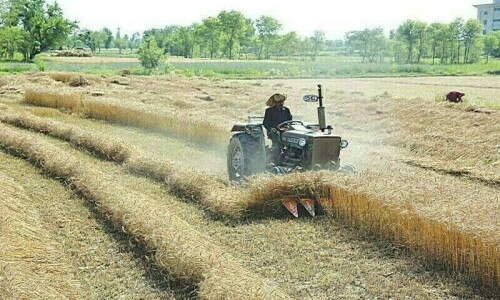The debate on the economy between the government zealots and the resistance, the moniker given to the opposition circles by diehards of the government rank and file on social media, is getting to be rather boring, if not horribly tiresome. And the atmosphere is super charged, if not hysterical, to say the least.
In the ensuing confusion, laymen like me are left wondering who is right and who is wrong; notwithstanding that in the current highly polarised political environment we as a nation have forgone our sense to distinguish between right and wrong, and are simply toeing the respective party line unquestioningly.
Nonetheless, even if for the sake of argument only — albeit deep down we all know that if the economy tanks the rest won’t matter — let’s make an attempt to muddle through this puzzlement.
The government at least has a plan, irrespective of whether or not it is imported, rather, thrust upon it. But let’s be honest, isn’t it even better that the numero uno institution recognised and respected the world over for developing and approving plans for saving nations facing a financial crisis, and that too for decades, was nice enough to develop a programme for us?
And that is not all. They, the IMF, also take pains to review the programme every quarter to ensure we don’t go off track; what else can we want? The second review has just been completed and the IMF is pleased to note that “All end-December performance criteria were met, and structural benchmarks have been completed.” So there!
Unless we have a Plan B, we should stop criticising the IMF.
Let’s also not forget that the previous government had imported an almost similar plan in 2013 and bragged about passing the quarterly reviews all the way till the twelfth and final review concluded on Sept 28, 2016, which found that “Pakistan’s Fund-supported programme has helped the country restore macroeconomic stability, reduce vulnerabilities, and make progress in tackling key structural challenges”.
So is the ‘resistance’ criticising for the sake of criticism only; simply making noise since they have nothing better to crib about? That would appear to be the case, since how can the IMF be wrong?! And did not the ‘resistance’ sleep in the very same bed?
But in the best interest of Pakistan, and being magnanimous at the same time, let’s accept all the criticism being dumped on the state of the economy with the sole purpose of separating the wheat from the chaff.
Fine, the IMF is right until it is wrong; just three to four months after the conclusion of the last programme in 2016, all hell broke loose and Pakistan was facing a double deficit whammy. And since admittedly there is not much difference in the current and the previous programmes, the likelihood of history repeating itself cannot be ignored. Undeniably, the IMF projects that external debt will increase to $138 billion by June 2024, and that too with foreign direct investment and workers’ remittances projected to rise to $5bn and $27bn respectively in that year, and there is a risk that the Article IV consultation at the end of 2024 will find that “the growth outlook remains favourable, but ... that policy implementation weakened recently and macroeconomic vulnerabilities are re-emerging”.
Okay, it is conceded that GDP growth was only 1.9 per cent this year and will fall to 1.2pc next year and 2.2m people will be laid off.
Admittedly, the circular debt has increased to a whopping Rs1800bn and the government is clueless about how to handle that. The state-owned enterprises continue to bleed and the government has failed to restructure or privatise the loss-making units.
And let us not forget the hot money; high interest rates to attract hot money have exposed the economy to serious risks. Inflation is uncontrollable, and the IMF is wrong about its inflation outlook, and the country has sunk deeper into the debt trap. Industry is in a state of recession, and capital investment is conspicuous by its absence. In fact, even our backbone, agriculture, is on a serious downward trajectory.
Is anything left? If so please feel free to add to the list.
Finally, let us also sidestep the blame game; whoever did it is not important, only the way forward matters.
So where is Plan B?
It is easy to say that exports have to grow, tax recovery should increase, the currency should stabilise, GDP should rise to over 5pc, and what not, and all of that should happen simultaneously and immediately. But where is the magic wand? What is Plan B?
Either come up with a Plan B or let’s stop criticising the IMF-approved plan which the government continues to diligently pursue and hope that it works this time around.
Essentially, in all the noise out there, very worryingly, no one appears to have a Plan B.
The writer is a chartered accountant based in Islamabad.
Published in Dawn, February 25th, 2020












































